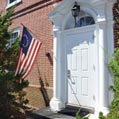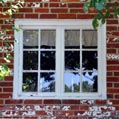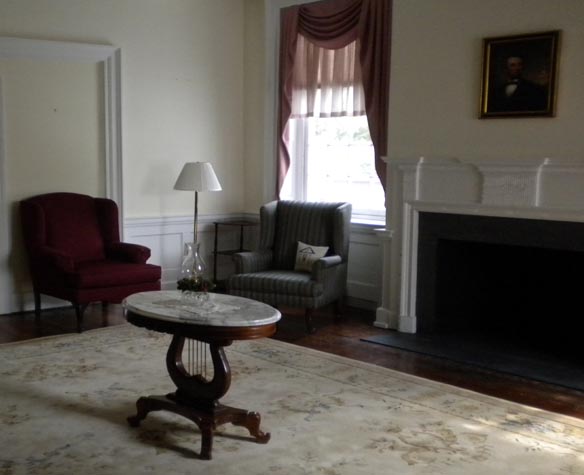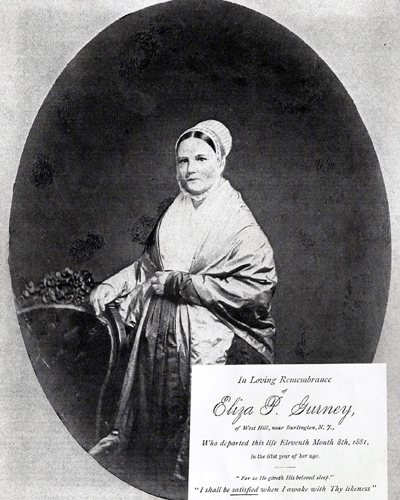About West Hill
Information on Susanna and Samuel Emlen
Information on Eliza Paul Gurney
Eliza Paul Kirkbride was born on April 6, 1801 in Philadelphia to Joseph and Mary Paul Kirkbride, both of Quaker descent.
She met Joseph John Gurney in September 1837, on a return trip from England and gave him valuable information and council regarding his journey in America. During his visit, he conducted two religious ceremonies in the House of Representatives. He addressed a joint session of Congress and corresponded with Abraham Lincoln. He met with President Martin Van Buren at least four times. He also met with Henry Clay, John C. Calhoun, Daniel Webster, John Quincy Adams, Roger B. Taney, and the Rev. Ellery Channing.
Eliza was recognized as a minister by the Quaker Monthly Meeting in England in July 1841 and married Mr. Gurney in October of that year. Together, they investigated prisons, arranged gatherings of influential persons for semipublic discussion of prison reform and the abolition of slavery and the slave trade, and conferred with public officials about these issues. They met with King Louis Philippe, of France, and the Prime Minister concerning the end of slavery in French colonies. They also preached prison reform in France and Germany. Eliza and Joseph founded Earlham College, in Indiana, to bring better education to Quakers in thinly settled parts of the West. Joseph John Gurney died in 1847, a result of being thrown by a horse.
In 1850, Eliza returned to America and, in 1851, settled at West Hill. During the next eight years she resumed the labors of a traveling minister. Between 1855 and 1858, she preached in England, France, Italy, Switzerland, and Germany. She visited with the Dowager Empress of Russia and the King of Germany, securing the release of a young man who was imprisoned in Germany for his conscientious refusal to bear arms.
Her public ministry was faithfully maintained; the evening gatherings at her large household were regularly kept up. The visitors to West Hill included William E. Forster, M.P., Chief Secretary for Ireland, and Sir T. Fowell Buxton, grandson of the philanthropist of the same name, along with many regulars – John Hodgkin, minister, Dr. Joseph W. Taylor, and William J. Allison, abolitionist and owner of the pharmacy in Burlington, a documented stop on the Under-ground Railroad.
The Civil War presented a dilemma for the Eliza: her anti-slavery beliefs and pacifism were strong, but she wanted the North to win the war. In October 1862, Eliza, along with 3 other Friends, made a personal visit to Abraham Lincoln. She assured the President of the support of the Friends in his endeavor to end slavery and the war. She then prayed with him. Nearly a year later, Eliza received a special request from the President, through Isaac Newton, U.S. Commissioner of Agriculture, that she would write to him, which she did on August 18, 1863. On September 4, 1864, Lincoln wrote to Eliza, a woman who brought out a specially thoughtful side of the President. Eliza responded to his letter on September 8, 1864. When President Lincoln was assassinated, Eliza’s letter, written nearly two years previously, had been carefully “treasured up” by him, and was in his breast pocket when the fatal shot struck him.
Eliza Gurney was a powerful and compelling preacher who was an important leader in the groups of English and American Quakers who tried to fight lethargy and doubt within the Society of Friends.



2.jpg)

